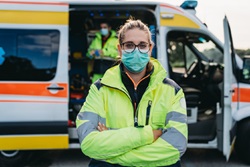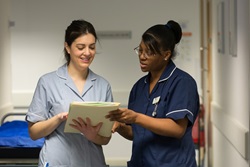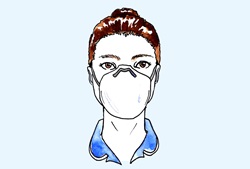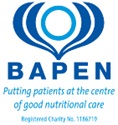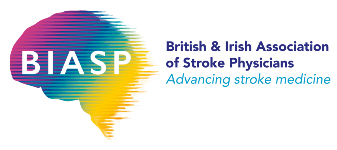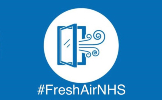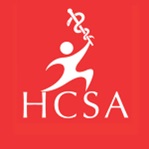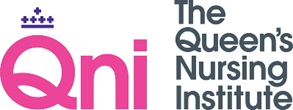Introduction
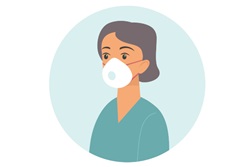
This toolkit supports healthcare professionals manage infection risks associated with the transmission of common respiratory infections including COVID-19, Influenza, influenza like illness (ILI) and Respiratory syncytial virus (RSV). This toolkit also aids local decision making on the level of personal protective equipment (PPE) required to protect staff whilst at work.
This toolkit highlights both the duties of health professionals (health care workers, employers, health care leaders, and health and safety representatives) to support the identification and management of risks wherever health professionals' work. Employers have legal duties and responsibilities to ensure they provide a safe and healthy workplace as far as reasonably practicable.
Respiratory infections that spread and infect healthcare workers, patients and visitors in health and care settings result in staff becoming unwell and absent from work, outbreaks of infection, patient infection and deterioration in their conditions and delays to discharge. The Royal College of Nursing considers the prevention of infection a core element of patient safety that requires strong prevention and management actions.
How to use this toolkit
This toolkit should not be used in place of national or local guidance. It is designed to complement existing guidance as outlined in the introduction.
Toolkit users should select the appropriate section relevant to their role to review. You may also find it informative to review the roles and responsibilities of others to support your understanding of the management of risk where you work.
The risk assessment process identified within the Risk Assessment Tool section is designed as a guide to help identify potential risks for the transmission of infection where you work.
Also within this section is a guide to identifying potential control measures including the correct level of respiratory protection that may be required.
This toolkit has been produced collaboratively in association with the other professional organisations and associations as set out in the acknowledgement section.
This toolkit aims to recognise risks when providing close proximity care for patients known or suspected to have a respiratory infection, and the increasing evidence base supporting this risk in enclosed spaces which can be applied to homes and health and care environments more generally. Given that for many people with respiratory symptoms the specific virus responsible will not be known it is recommended that a risk-based approach is adopted that takes into account a number of elements including the prevalence of respiratory infections in the wider local community, potential infection following foreign travel and current outbreaks of infection in the workplace.
Links to surveillance data on circulating respiratory infections can be found below. Whilst infections are more prevalent in the winter period they are present all year round and vary according to multiple factors.
- Scotland Public Health Scotland
- England UKHSA
- Wales
- Northern Ireland Public Health Agency Northern Ireland
This toolkit is intended to support health and care workers in all settings, employers and managers to navigate existing guidance, local policies and procedures to enable risk assessment in their workplace and to reduce the transmission of infection. The principles included within this toolkit can be applied to any respiratory infection, capable of causing harm to health.
The toolkit recognises that health and care workers in contact with patients/clients who have or who may have a respiratory infection which could cause harm to health should be adequately protected under the legal duties placed on their employers under the Control of Substances Hazardous to Health (COSHH) Regulations 2002. In Northern Ireland this includes the Management of Health and Safety at Work Regulations (Northern Ireland) 2000 and The Control of Substances Hazardous to Health Regulations (Northern Ireland) 2003. This represents a shift from mandated pandemic requirements in previous national guidance documents to the need to risk assess the use of respiratory protective equipment. (see Risk Assessment Tool section).
Regulation 6 of the COSHH Regulations and Regulation 3 of the Management of Health and Safety at Work Regulations 1999 place a legal duty on employers to make a suitable and sufficient assessment of the risk of exposure to a substance hazardous to health and identify the steps that need to be taken to control the risk. If the risk of exposure cannot be prevented, adequate controls, in line with the principles of protection (outlined in Schedule 2A of COSHH) must be in place. Principle (e) in Schedule 2A requires the employer to provide employees with suitable personal protective equipment (PPE), e.g. respiratory protective equipment (RPE), in addition to all other control measures if the combination of those measures fails to achieve adequate control of exposure.
The employer must also provide employees who undertake work liable to expose them to respiratory infections which could cause significant harm to their health with suitable and sufficient information, instruction and training provided in a manner appropriate to the level, type and duration of exposure identified by the risk assessment.
We know that in the face of continuing pressures caused by all respiratory infections, our members want to deliver the best and safest care they can and deserve adequate and appropriate protection whilst working. Therefore, in collaboration with CAPA (COVID Airborne Protection Alliance group) and the British Occupational Hygiene Society (BOHS) the RCN has developed a risk assessment toolkit to support members working in all health and care settings.
It is the legal duty of every employer to ensure, so far as is reasonably practicable, the health, safety and welfare at work of all his employees. The COVID-19 pandemic has shone a light on the risks faced by health professionals in all care settings and the need for rigorous and detailed health and safety procedures.
This toolkit aims to bring together all relevant duties, including Infection Prevention and Control (IPC) guidance (UK, national or local), health and safety legislation and employment law duties in a way that ensures that they work together in a complementary way from a health and safety perspective.
The toolkit aims to support relevant staff to solve practical problems and thinking through the considerations that employers and managers are legally obligated to consider when arriving at decisions which will determine the health of health care workers.
It should be highlighted that some of the information and detail in this toolkit might be new to health care workers who have not had to consider respiratory protection against biological hazards previously in their roles as employers, managers or individual workers. For more information on health and safety, see the Health and Safety Executive Northern Ireland and Health and Safety Executive Great Britain websites.
Why a toolkit, rather than a single tool?
It is recognised that risk assessments can be poorly understood, complex, and duties outlined in legislation/regulation are sometimes difficult to navigate. At different employee and managerial levels within health and care organisations, the challenges in decision-making manifest themselves in different ways and hinge on different sets of duties and perspectives.
It is for this reason therefore that, working across a range of professional and scientific organisations, we have developed a toolkit that seeks to clarify the primary obligations of decision-makers at different levels across the health care sector to enable a consistent and systematic consideration of health and safety responsibilities in the context of COVID-19.
The COVID-19 pandemic has led to a greater understanding of how respiratory infections can be spread between individuals in closed physical environments such as homes, prisons, schools, public spaces (e.g. theatres and restaurants) and health and care environments. Learning based on growing international evidence is challenging the historical dogma of respiratory infections spread via droplets or airborne transmission and the impact of this categorisation on the application of health and safety legislation aligned to this. It is now widely accepted that both infectious droplets and smaller aerosols can be produced by people with a respiratory infection as part of activities of daily living (talking, breathing, coughing) in addition to care procedures such as induction of sputum, endoscopy and dental procedures as described in local of employer policies on aerosol generating procedures. This has resulted in a renewed focus on the role of air and ‘airborne transmission’ and its impact on the prevention of infection. International consensus concludes that a number of measures such as adequate ventilation, use of respiratory protective equipment, physical distancing, air filtering/cleaning technologies or reduced density of people in indoor environments may be required.
It is important to note that individual staff who work whilst symptomatic with an acute respiratory infection are at risk of transmitting this to others in the workplace wherever that is. National guidance outlines actions for health and care staff to take including when to stay at home if not well enough to work. Local policies should support this in additional to national guidance such as ‘promoting health and wellbeing and attendance at work’ (NHS Employers). Managers should support staff to stay at home if they are unwell and staff should not feel pressured to work until well enough to do so. RCN members can contact RCN Direct for support if required.
Evidence has highlighted that healthcare workers are at an increased risk of acquiring COVID-19 and other respiratory infections compared to the general population (Mutambudzi et al 2021, UKHSA 2022 and Toren 2023). As a result of the pandemic, there is now increased awareness and scrutiny of the impact of respiratory infections acquired as a result of spread within the health and care workplace affecting staff and patients. The Health and Safety Executive Approved List of biological agents set by the Advisory Committee on Dangerous Pathogens (HSE 2023) is a useful reference for supporting risk assessment and management of risk in the workplace. Those that can cause respiratory illness and potential harm fall in to Hazard groups 2 and 3. They all require risk assessment and controls to be in place under Control of Substances Hazardous to Health Regulations (COSHH).
| Group 1 | Unlikely to cause human disease. |
|---|---|
| Group 2 | Can cause human disease and may be a hazard to employees; it is unlikely to spread to the community and there is usually effective prophylaxis or treatment available |
| Group 3 | Can cause severe human disease and may be a serious hazard to employees; it may spread to the community, but there is usually effective prophylaxis or treatment available. |
| Group 4 | Causes severe human disease and is a serious hazard to employees; it is likely to spread to the community and there is usually no effective prophylaxis or treatment available. |
Table 1 - Health and Safety Executive Approved List of biological agents hazard group definitions, Advisory Committee on Dangerous Pathogens (HSE 2023)
A number of pathogens that cause respiratory infection are classified as potentially causing severe infection in humans includes Mycobacterium tuberculosis (TB), some influenza viruses, measles, disseminated herpes zoster, Middle East respiratory syndrome-related coronavirus (MERS), Severe acute respiratory syndrome-related coronavirus 1 (SARS-CoV-1) and Severe-acute respiratory syndrome-related coronavirus 2 (SARS-CoV-2) the cause of COVID.
The evolution of SARS-CoV-2 variants of concern (VoC) associated with increased transmission of the virus and rapid rise in healthcare worker infections and sickness absence has raised many questions regarding the route and risk of transmission of the virus. The key consideration is transmission through the air and quality of ventilation to mitigate this where health and care is delivered, for example, in care homes, patients own homes, prisons, and primary care/acute settings.
Taking such evidence into account the RCN and partners have developed this online risk assessment toolkit. The toolkit has been developed to provide guidance to mitigate the airborne route of transmission which is recognised as posing a significant risk to healthcare workers when working within 2m of a person known or suspected to have COVID-19 and other respiratory infections.
Risk assessment is fundamental to the provision of a safe and effective workplace – in healthcare this supports the protection of staff, patients, and visitors. Risk assessment, as a core component of health and safety legislation, is already embedded in healthcare with examples including the control of hazardous substances (chemicals, asbestos, biological agents) and the prevention of musculoskeletal injuries when moving and handling and sharps injuries. The toolkit may be of benefit to employers, managers, healthcare professionals and trade union health and safety representatives. It recognises that toolkit readers needs may vary. Readers may wish to read all elements of the toolkit or go directly to sections applicable to their needs at the time. The left-hand toolbar can be used to navigate sections of the toolkit according to need
Note: Infection prevention and control national and local guidance should inform local risk assessment carried out under relevant health and safety law. This toolkit does not replace national or local policies/guidance, and should be used in conjunction with these to support employers to meet their legal obligations.
Specific roles and responsibilities for applying health and safety legislation will be different depending on the roles and positions within your own organisation. Health and safety legislation and regulations apply to all workplaces. This includes health and care settings wherever care is provided such as people’s own homes, prisons, and ambulances. For more information on health and safety, see the Health and Safety Executive Northern Ireland and Health and Safety Executive Great Britain websites.
The toolkit acknowledges the learning that has occurred as a result of the COVID-19 pandemic and recognition that airborne transmission is now a significant factor in the spread of respiratory infections and therefore a key aspect of health and safety risk assessment for health and care worker protection.
Risk assessment supports local decision making, on whether and what level of actions are required to protect staff, patients, and visitors. Action to support risk assessment is the responsibility of many people and some are described in the toolkit.
Health care workers providing close physical care (within 2 m) are at greater risk of acquiring an infection spread via the respiratory route, especially in poorly ventilated environments (e.g. wards, single rooms, ambulances, patient homes).
Evidence currently demonstrates that the highest concentration of infective respiratory particles (droplets or aerosols) occurs when a health care worker is close to the patient.
Ventilation or air cleansing technologies alone do not protect health care workers in close proximity to patients with a known or suspected infection that may cause harm to health.
A risk assessment which considers all relevant controls to reduce the likelihood of exposure is still required.
Fluid resistant surgical face masks (FRSM) are not classified as PPE and should not be provided as protection against infections spread via the airborne route.
Examples to support practical implementation of risk assessment:
As our experience of undertaking risk assessment for respiratory infections grows, there are examples that we can learn from a range of organisations. The tools and resources below can be used to support the risk assessment toolkit.
- Royal College of Speech and Language Therapists 6P’s for covid-19 risk assessment
- British Occupational Hygiene Society Summary (BOHS)

